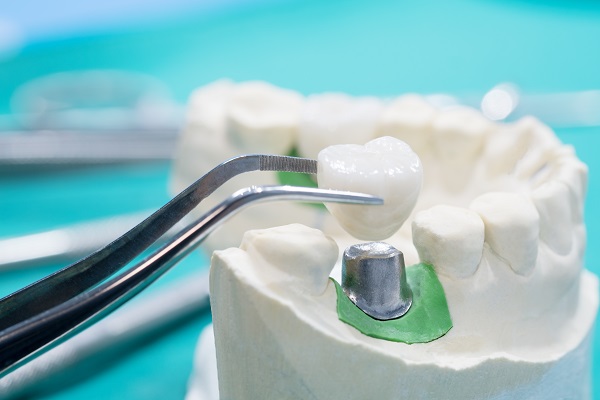
Discover the Perfect Solution: Dental Implants Near Me!
Dental implants have revolutionized the field of restorative dentistry by providing a reliable and long-lasting solution to tooth loss. If you’re searching for dental implants near me, you’re taking a step towards discovering a state-of-the-art treatment option that not only enhances your smile but also restores the functionality of natural teeth. This comprehensive guide will explore the many facets of dental implants, including their benefits, procedural steps, technological advancements, and how to find top-rated professionals near you.
Understanding Dental Implants
Dental implants are surgically placed devices that serve as the roots for missing teeth. Made typically of titanium, a material well-tolerated by the human body, these implants integrate with the jawbone, creating a sturdy foundation for artificial teeth such as crowns, bridges, and dentures. Unlike other restorative solutions, dental implants are unique because they mimic the structure of natural teeth and offer stability that prevents bone loss and maintains facial structure.
The Benefits of Dental Implants
Dental implants are renowned for their durability and functionality, offering several advantages over traditional dentures and bridges:
- Longevity: Implants are designed to last for decades, making them a cost-effective solution in the long run.
- Bone Health: By stimulating bone growth, implants prevent the bone deterioration that often accompanies tooth loss.
- Functionality: Implants restore chewing ability and do not restrict the diet to the same extent as dentures.
- Aesthetics: They provide a natural look, enhancing not only the smile but also the overall facial appearance.
- Speech Improvement: Unlike dentures, which can slip and cause mumbling or slurring, implants allow for clearer speech.
Ideal Candidates for Dental Implants
While most adults in good health are potential candidates for dental implants, success rates are highest among those with adequate jawbone density, non-smokers, and individuals without chronic diseases that could impair healing. For those lacking sufficient jawbone volume, options like bone grafts are available to enable the placement of implants.
The Dental Implant Procedure Explained
The journey to getting dental implants involves several stages:
- Initial Consultation: This includes a thorough dental exam, medical history review, and imaging tests to assess bone quality and plan the implant procedure.
- Implant Surgery: Performed under local anesthesia, the implant is placed into the jawbone.
- Healing Process: Also known as osseointegration, this phase allows the implant to bond with the bone and can take several months.
- Abutment Placement: Once healed, an abutment is attached to the implant. This piece connects the implant to the replacement teeth.
- Crown Placement: Custom-made to match natural teeth, the crown is then attached to the abutment.
Post-Procedure Care
Maintaining dental implants involves routine care similar to natural teeth, which includes brushing, flossing, and regular dental check-ups. It’s crucial to avoid chewing hard items like ice or hard candy, which can damage both natural teeth and implants.

Types of Dental Implants
Dental implants come in various forms, designed to accommodate different dental conditions and patient needs:
- Endosteal Implants: The most common type, these are placed directly into the jawbone and are typically shaped like small screws.
- Subperiosteal Implants: These rest on top of the jawbone but under the gum. This type is used for patients who do not have enough healthy natural jawbone and cannot, or do not want to, undergo a bone augmentation procedure to rebuild it.
Potential Risks and Mitigation Strategies
While dental implants generally have a high success rate, they do carry some risks:
- Infection at the Implant Site: Proper surgical techniques and post-operative care are critical to preventing infection.
- Nerve Damage: Can result in pain or numbness in nearby muscles. Advanced imaging techniques help surgeons avoid nerves during implant placement.
- Implant Failure: Occurs in rare cases where the jawbone fails to fuse sufficiently to the implant. Smoking and certain chronic diseases can increase this risk.
Preventative measures include selecting a highly qualified dental surgeon and following all post-surgery care instructions closely.
Comparison with Other Tooth Replacement Options
Dental implants offer several advantages over other tooth replacement options:
- Bridges: While less invasive, bridges require altering adjacent healthy teeth to support the bridge, which can lead to tooth decay and other complications over time.
- Dentures: Less expensive but often less comfortable, dentures can slip while speaking or eating and do not prevent bone loss in the jaw.
Dental implants, by contrast, do not affect neighboring teeth and help preserve the jawbone.
Long-Term Care and Maintenance
Long-term care of dental implants is straightforward but essential:
- Daily Cleaning: Just like natural teeth, implants should be brushed twice a day and flossed daily.
- Regular Dental Checkups: Visiting your dentist every six months ensures that any issues are caught early and dealt with promptly.
- Avoiding Hard Foods: Hard foods can damage both natural teeth and implants, so they should be consumed cautiously.
Economic Considerations
Dental implants are an investment in your oral health. Although the upfront cost is higher than dentures or bridges, the long-term benefits often outweigh the initial expense. Many dental insurance plans now provide coverage for implants, and financing options are available to manage the cost effectively. Additionally, considering the durability and decreased need for replacements, dental implants can be more economical over time.
Technological Advancements in Dental Implantology
The field of implant dentistry continues to evolve, incorporating advanced technologies that improve the precision and efficiency of implant placement:
- 3D Imaging: Tools like Cone Beam CT scans provide detailed views of the jawbone structure, allowing for precise implant placement.
- Computer-Aided Design/Manufacturing (CAD/CAM): These technologies enable the custom fabrication of surgical guides and replacement teeth, reducing procedure times and improving outcomes.
- Teledentistry: Emerging tools in teledentistry facilitate pre-surgical planning and follow-up care, enhancing patient convenience and engagement.
Finding the Best Dental Implants Near Me
To find the best dental implant specialists in your area, consider the following tips:
- Credentials and Experience: Look for a dentist who specializes in implantology and has a proven track record.
- Technology and Facility: Choose a clinic that utilizes the latest dental technology for the best results.
- Patient Reviews: Online reviews and testimonials can provide insight into a dentist’s expertise and patient satisfaction.
Conclusion
Choosing dental implants is a decision that can dramatically improve your quality of life by providing a permanent solution to tooth loss. By understanding the process, benefits, and care requirements of dental implants, you can make an informed decision about whether they are right for you. When searching for dental implants near me, be sure to consider the qualifications of the dental professional, the technology they use, and the experiences of their previous patients. With the right preparation and care, dental implants can offer a lifetime of smiles and functional benefits.



